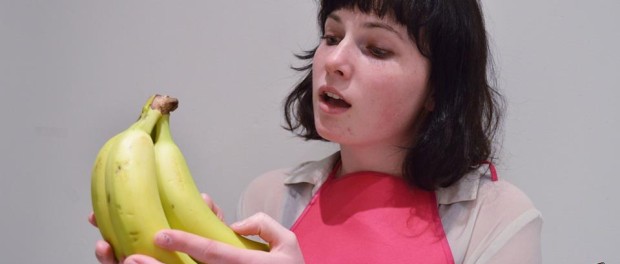Sex in MTL: What is Sex?
In the heterosexual vision our society has of relationships, people tend to see sexual encounters as a very specific thing. “Having sex” is often seen as a synonym for penetration. The problem with this inaccurate definition is that we force ourselves to live our sexual encounters the way society dictates it. Sex education classes won’t help a lot in most cases (also considering that for now, in Quebec, there are no actual classes that teaches young teenagers about sex) because they focus on STDs and pregnancy. This vision of sexuality centered on penetration of the vagina, mainly by the penis, dismiss other sexual experiences, and it can be harmful mostly for people still learning the basics of an active sex live.

sex (ed). how did you learn about sex
If we teach that sex is basically penetration, anyone without a penis or who doesn’t want to use it that way is left with a feeling of not being enough or inadequate. Not everybody feels comfortable with penetrating a partner, and not everybody wants to be penetrated. In our society, people usually feel pressured to include penetration in their sexuality, so even if they do not enjoy it, they are used to deal with the fact that they are obligated to have sex that way. Those people would probably want to make some changes in their sex life, but they don’t dare because of norms. So even if there can be multiple reasons why someone wouldn’t want to live their sexuality like that, the first cause is usually about a health issue, either physical or psychological (like vaginismus1
, phimosis2 or a traumatism related to sex or relationships). People might want to change the situation with medication, exercises or by seeing a therapist. In the end, it is their choice and they also might chose to do nothing about the situation because they feel it is best for them to keep it that way. They may also simply not like the feeling of the penetration and decide to live their sexuality with all the other options that our bodies offer us.

Super Sexe. Photo Rachel Levine
This very static vision of what sexuality is, imposed by our culture, also excludes any relationships other than heterosexual ones. Ah, the joys of heteronormativity3! It is essential that we, as a society, teach our kids that everybody, and every body, is different. People can make choices about their sexuality, choices that maybe differ from the so-called norm, and we should respect those decisions, especially as a sexual partner. Sexuality is not a concept that we can reduce to a simple movement; it a vast experience that every human lives differently, if they chose and a want an active sexual life. When we learn about the interesting and magical world of sex, knowing that we can have limits that have to be respected, and that there is no “correct” way of having sex is a crucial part of growing into a healthful sexuality.
1. Sometimes called vaginism, it is a condition that affects a woman’s ability to engage in vaginal penetration.
2. It is a condition of the penis where the foreskin cannot be fully retracted over the head of the penis. It is deemed pathological when it causes problems, such as performing common sexual functions.
3. The belief that people fall into distinct and complementary genders (man and woman) with natural roles in life. It assumes that heterosexuality is the only sexual orientation or only norm, and states that sexual and marital relations are most (or only) fitting between people of opposite sexes.
Have a question related to sex or sexualty or just Montreal, ask Ariane at Sex in MTL






